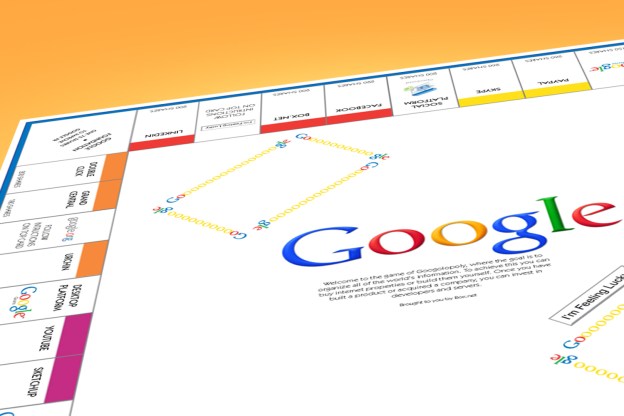
There’s a butcher in town, and his name is Google. Reader isn’t the sole victim of the company’s newfound love for the chopping block. Other recent victims include iGoogle, Knol, Picnik, Aardvark and Code Search. In total, Google has shut down over 45 services since 2006.
Google has the right to shut down whatever service it desires, but there’s a difference between what can be done and what should be done. While investors love companies that shut down unprofitable services, the public has a different opinion – and that opinion counts.
The problem with dominance
Companies that manage to squash competitors still have to worry about public opinion and the government. Anti-trust laws dictate that no company can hold a monopoly on a market. This principle, though seemingly simple, is complex and has historically been mired with ambiguity. Companies that grow too large must constantly worry about the threat of an anti-trust lawsuit.
And what a troublesome threat an anti-trust lawsuit can be. In a case that lasted from 1998 to 2001, Microsoft dodged a breakup by a hair in appeals court, arguably only because the original judge gave media interviews while still hearing the case. Intel was fined over $1.4 billion after losing an EU case, and has also reached settlements in Japan, South Korea, and the United States. Even Google paid $22.5 million to settle allegations that the company has misrepresented data.
The uneven enforcement of anti-trust law can strike companies off guard. A sudden change in public opinion, or a new administration in Washington, can turn previously tolerant regulators aggressive within a few years or months. Cutting services at the drop of the hat only aggravates an already volatile situation. Instead of turning inward, Google must protect itself with a proactive and public campaign similar to that used by the world’s most persistent monopoly in tech: AT&T.
The public face
AT&T managed its 70-year stranglehold on telecommunications in the United States by acting as a benevolent dictator. The company committed itself to “universal service” with a promise that AT&T would provide a base-level service to everyone at a fair rate, even if providing service to a particular individual wasn’t profitable. In addition, the company funded the world-famous Bell Labs and worked hand-in-hand with the government on numerous national works. AT&T helped build the radar stations that watched for Soviet bombers over the arctic, guaranteed communications throughout the country in times of crisis, and oversaw Sandia National Laboratories (one of America’s leading nuclear research facilities) until 1993.

These efforts weren’t handouts. For decades, they generated new revenue while also letting the company run as a tolerated monopoly. AT&T believed that one system was the best solution for communications and made this belief a reality by ensuring that it was held in high regard by both the public and the government. Though antitrust investigations came to light, they were delayed or derailed for decades. Building an argument against a company that appeared to operate in the national interest proved nearly impossible.
The lesson here is clear: if a company wants to dominate its market, it must also appear cooperative and sincere. Microsoft could have entirely avoided its anti-trust case if it had been upfront and willing to compromise. Instead, the company refused to budge and even Bill Gates, now known for his charity work and even demeanor, was famously uncooperative. The public saw Microsoft as evil; the court saw it as childish. Redmond has never entirely shrugged of its reputation as headquarters for “The Evil Empire” and “Micro$oft.”
At times, Google has been equally uncooperative. The company’s Wi-Fi snooping scandal was rife with maybe-we-did, maybe-we-didn’t, and it ultimately resulted in management laying blame on its engineers rather than owning up to the company’s mistakes. More recently, Google was caught circumventing Safari’s anti-tracking measures despite a public statement telling Safari users that their actions weren’t being logged – which lead to the previously aforementioned $22.5 million fine.
However, these trivial penalties are nothing compared to the damage done in the court of public opinion. Closures of major services, such as Reader and Picnik, are not bemoaned only because they take away a free product; the real problem is Google’s tendency to enter a market, destroy (or buy out) the competition, and then retreat – leaving only a crater behind. Actions like these spoil trust in Google, and, little by little, transform Google from a company that remembers its up-start roots into an entity that makes more excuses than apologies.
Domination leads to responsibility
This is exactly the opposite of how a company in a dominant position should act, and Google most certainly is a company in a dominant position. The company holds almost 70 percent of the market for online search and 79 percent of the market for online advertising. In addition, Google has the majority market share in online video and mobile advertising. Gmail is the world’s most popular webmail service, and Google Docs is likely the most popular online productivity suite, though hard numbers for that service are difficult to find.
Google doesn’t seem to understand that with great market share comes great responsibility
Still, focus doesn’t have to come at the expensive of public support. There were many ways to kill Reader. It could have been incorporated into the new Google Keep, updated on occasion by a small engineering staff, or simply abandoned without comment. Dropping the service completely shows Google doesn’t seem to understand that with great market share comes great responsibility.
Just as AT&T maintained unprofitable lines to maintain its commitment to universal service, Google must learn to maintain (if not further develop) services that are unprofitable but fill a public need. In fact, it should look for needs that are unfulfilled by any service and create products in response. If more engineers must be kept on-staff, so be it. Consider it the cost of public relations.
Conclusion
Google, like most companies that deal in information rather than physical products, must grow as large as possible. This is where it differs from Microsoft and Intel, both of which must worry about issues like manufacturing, supply, and customer service. Like the information giants that have preceded it, Google will become as large as possible as quickly as possible because there’s no reason not to.
However, vanquishing competitors doesn’t vanquish risk. Even a dominant company will slip if the public or government believes it to be acting against their interests. Though Google recently managed to dodge an FTC anti-trust investigation concerning self-promotion via search, an EU investigation is ongoing, and a lack of charges in either case doesn’t prevent a new investigation in the future. Google must be prepared to win in both a court of law and the court of public opinion. And that means a company’s motto of “do no evil” must be maintained, not just as a slogan but also as a guiding principle.
Image Credits: Todd Ehlers/Flickr, Kelly B/Flickr, Dolores Develde/Deviant Art, FHKE/Flickr.


